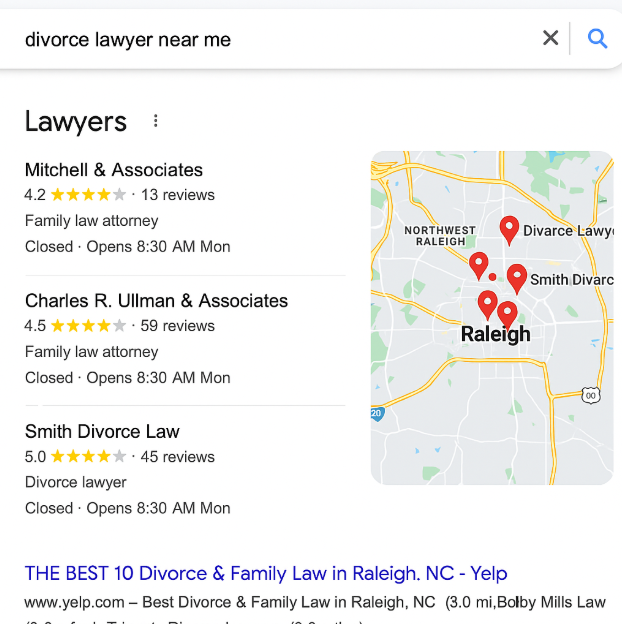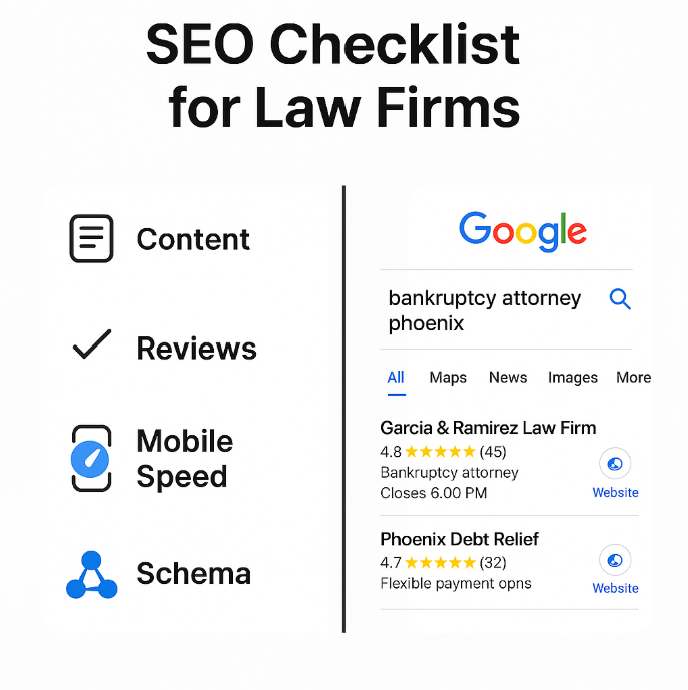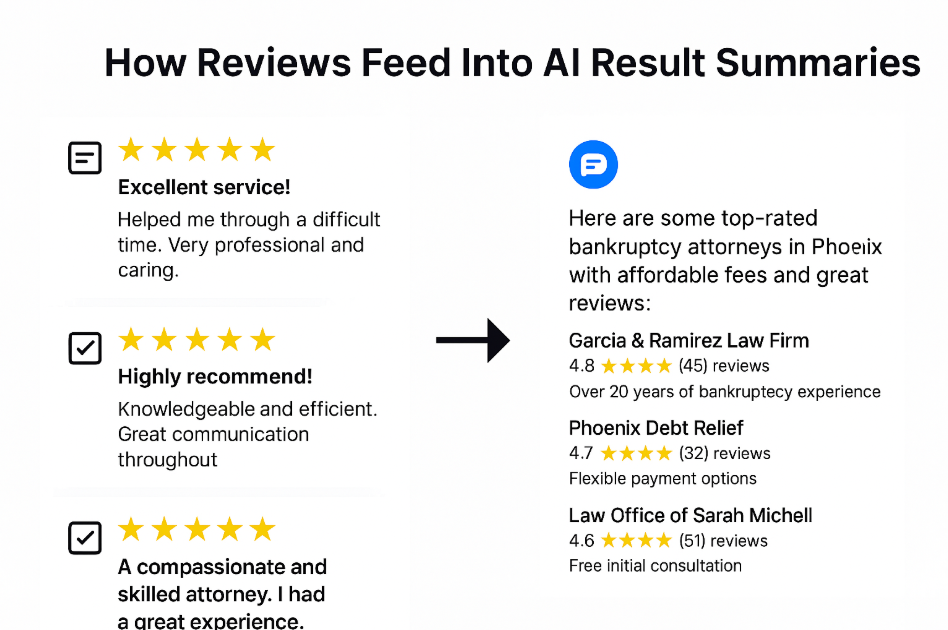The Evolution of SEO for Law Firms w/ AI

How AI is Transforming Local SEO for Legal Practices
Digital marketing for attorneys — especially search engine optimization (SEO) — has undergone a dramatic transformation due to the rise of artificial intelligence (AI). For law firms, this shift presents new opportunities and challenges. AI tools like ChatGPT, Google Gemini, Microsoft Copilot, and others are changing how prospective clients search for and evaluate legal representation. But traditional SEO isn't dead, it’s evolving to fit this new search paradigm.
Traditional SEO isn't dead. It's evolving.
🔍 Do Potential Clients Still Use Google to Find Attorneys?
Yes - especially for transactional intent like “family lawyer near me” or “best criminal defense attorney in [city].” People still rely on search engines, like Google, to get fast, map-based, review-driven results for nearby services providers.
In fact, Google has deeply invested in its local search ecosystem with features like the Local Pack, Google Maps, and Google Business Profiles, which remain essential for visibility.
However, consumer behavior is broadening.
🛠 Traditional SEO for Attorneys
Historically, law firms relied heavily on Google search to attract new clients. Consumers would type queries into Google, and the search engine would return a list of relevant local firms.
SEO strategies focused on optimizing websites to rank in these search results include using relevant keywords, practice-specific content, and backlinks to improve search visibility.

💬 Are Prospective Clients Using AI Tools Instead?
Increasingly, yes. As part of the search journey, especially for consumers who want more context, guidance, and recommendations, consumers now ask for more detailed recommendations:
“Who are the top-rated bankruptcy attorneys in Phoenix with affordable fees and great reviews?”
These AI responses pull from search-optimized content, so your site still needs strong visibility.
🤖 How AI-Powered Search Changes the Game
AI understands context and intent better than ever. That means law firms need strategic content and structure to stay relevant. AI tools can summarize results, compare options, and offer explanations in a way that traditional search cannot.
However, and this is critical, AI tools still rely heavily on search engines such as Google to gather their data. They do not generate entirely new information from thin air. This means that if your law firm does not rank well in traditional search, it will not surface in AI responses either.
AI tools still rely heavily on search engines to gather their data. They do not generate entirely new information from thin air.
🧠 AI Tools Enable Deeper, Contextual Searches
Instead of vague queries, users may request attorneys with specific expertise, flexible payment terms, or stellar reviews.
With the integration of AI into search engines, the landscape of SEO has shifted. The algorithms of AI now understand the context and intent behind search queries better than ever before. This makes search results more personalized and relevant.
Other AI powered tools such as virtual assistants, like Alexa or Siri, and AI chatbots can provide more nuanced answers to complex queries. However, it’s important to note that these tools also still rely on traditional search engines to gather information.
This means that while the way consumers search has evolved, the underlying data still comes from search engines like Google.
✅ What This Means for Attorney SEO
For law firms, more sophisticated SEO strategies that go beyond traditional keyword optimization are needed.
Key optimizations for law firms include:
- 📝 Content Depth: Pages answering client questions, showcasing expertise.
- 📍 Local Listings: Complete, accurate entries on Google and legal directories.
- 🌟 Client Reviews: Proactive reputation management.
- 📱 Mobile Optimization: Fast, friendly mobile experience.

👑 Reputation & Authority Matter More Than Ever
Schema markup, topical depth, and review signals help AI platforms feature your firm.

AI is filtering and enhancing search, so your content still needs to be well-optimized for search engines. AI tools often crawl and cite publicly indexed sources, such as review platforms, websites, and directories.
Schema markup, accurate business listings, and strong Google Business Profiles feed both traditional search and AI summaries. Your firm needs helpful, location-targeted content.
Expertise. Authoritativeness. Trustworthiness.
Since AI tools often weigh and summarize reviews, reputation and reviews are highly influential. Never underestimate the power of strong reputation management.
⚖️ Closing Argument
SEO for attorneys isn’t disappearing, it’s expanding. AI tools enhance, not replace, search engines. If your firm invests in modern SEO (content, schema, reviews, mobile performance), you’ll be visible to both Google and the smart tools built on top of it.
The game hasn’t changed. It has expanded. Your law firm should already be adapting to stay relevant in this AI-driven search landscape.
At Lead Science, our team of experts is focused on approaching every client’s online visibility based specifically on what makes each firm unique. Talk to us, we’re here to help.

